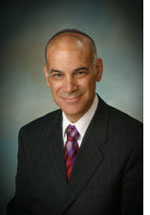By Rabbi Leonard Rosenthal

SAN DIEGO — Whenever I teach theology I love to ask students: who played the voice of Moses in the Dreamworks movie, The Prince of Egypt? If no one knows I tell them: Moses was voiced by Val Kilmer. Then I ask them who played the voice of God? If no one knows, I tell them: God was also voiced by Val Kilmer.
Having the same actor play both parts was not an effort to save money but rather a theological statement. When the renowned Biblical scholar Dr. Richard Elliott Friedman taught at UCSD he was called in as a consultant to the filmmakers, and he shared with his students how this casting came to be.
For a long time the creative team behind the Prince of Egypt agonized how to make God sound. Should they cast a James Earl Jones type of voice or someone more delicate, or even a woman? They finally decided that having Val Kilmer voice both roles was a perfect solution. Why? Because everyone hears God in his or her own voice!
While affirming that everyone hears God in his or her own voice is a beautiful theological statement, I also believe that it creates a myriad of theological problems. If everyone hears God in their own voice, then what they believe God says is not purely God, but God as modified by their own subjective understanding. Even if one believes in Torah min ha-shamayim, that the Torah is the exact immutable Word of God, the meaning of the “Word” is subject to interpretation. Despite those who claim otherwise, there can never be a pure objective knowledge of what God wants us to do.
Traditional Judaism claims otherwise. Although a lot of latitude is given when it comes to understanding what the Torah means, there is much less flexibility when it comes to obeying the Torah and the rabbis.
Rabbi Yitzchak Zev Soloveitchik of Brisk’s commentary on Exodus 19:2 reflects this. The Torah says, “Having journeyed from Rephidim, they [the Israelites] entered the wilderness of Sinai and encamped in the wilderness. Israel encamped there in front of the mountain [Mt. Sinai]” The medieval commentator Rashi commented on this verse: “[the Israelites were] unified, and like-hearted.” Rashi would have us understand that as the Israelites camped at the bottom of Mt. Sinai waiting for God’s revelation, they were completely united in mind, heart, and spirit.
“But how can this be so?” asks Rabbi Soloveitchik. How could every Israelite have equal devotion and be thinking exactly the same thing at the same time? It isn’t humanly possible for them to have been unified.
Rabbi Soloveitchik suggests an answer. He writes that when the Israelites responded to God’s offer of giving them the Torah, they first said na’aseh – “we will obey” and then v’nishma – “we will listen.” That is, even before they knew exactly what was in the Torah, they promised to obey it.
That they pledged their obedience before hearing the Torah, continues Rabbi Soloveitchik, made it possible for the Israelites to be completely unified when they entered into their covenant with God. If the Israelites heard the contents of the Torah first, they each may have had different perceptions and understandings of what God demanded of them. If they did not have the same understanding, then they would not have been unified in their acceptance. Because they first committed themselves to following the Torah, their individual interpretation of the whys and wherefores became of secondary importance.
While I understand the distinction that Rabbi Soloveitchik wishes to make between the importance of Jews being unified in their obedience to halacha (Jewish law) as opposed to the latitude allowed in Jewish thought, even a superficial survey of halacha indicates that there is little unity there, as well. One only needs spend a few minutes at Kosher Club in Los Angeles to see the number of different hekshers (Kashrut certifications) that apply to meat. While everyone who keeps kosher agrees that shechita (ritual slaughter) is required for meat to be consumed, there are multiple understandings of what constitutes appropriate shechita. Even though all the meat is kosher, not all of it is kosher enough for all Jews!
I come back to that which I wrote above: despite those who claim otherwise, there can never be a pure objective knowledge of what God wants us to do.
So what’s a Jew to do?
Although we can never be one-hundred percent sure of what God wants us to do, I believe that the closest approximation of God’s Will is found in the Torah and the subsequent literature of the sages of our tradition. There are ways to come to this conclusion through reason, but ultimately I believe it is a statement of faith.
I believe that while the Torah and rabbinic literature are the works of human beings, they are divinely inspired and reflect the Will of God. That is why I hold them as sacred and that is why I believe that Judaism is the best way for me and all Jews to make God manifest in the world.
*
Rabbi Rosenthal is spiritual leader of Tifereth Israel Synagogue. He may be contacted at leonard.rosenthal@sdjewishworld.com